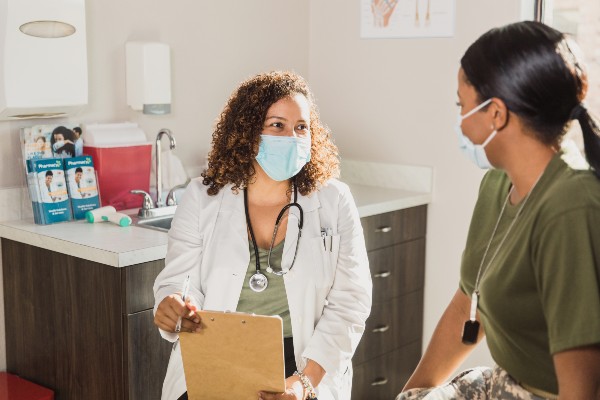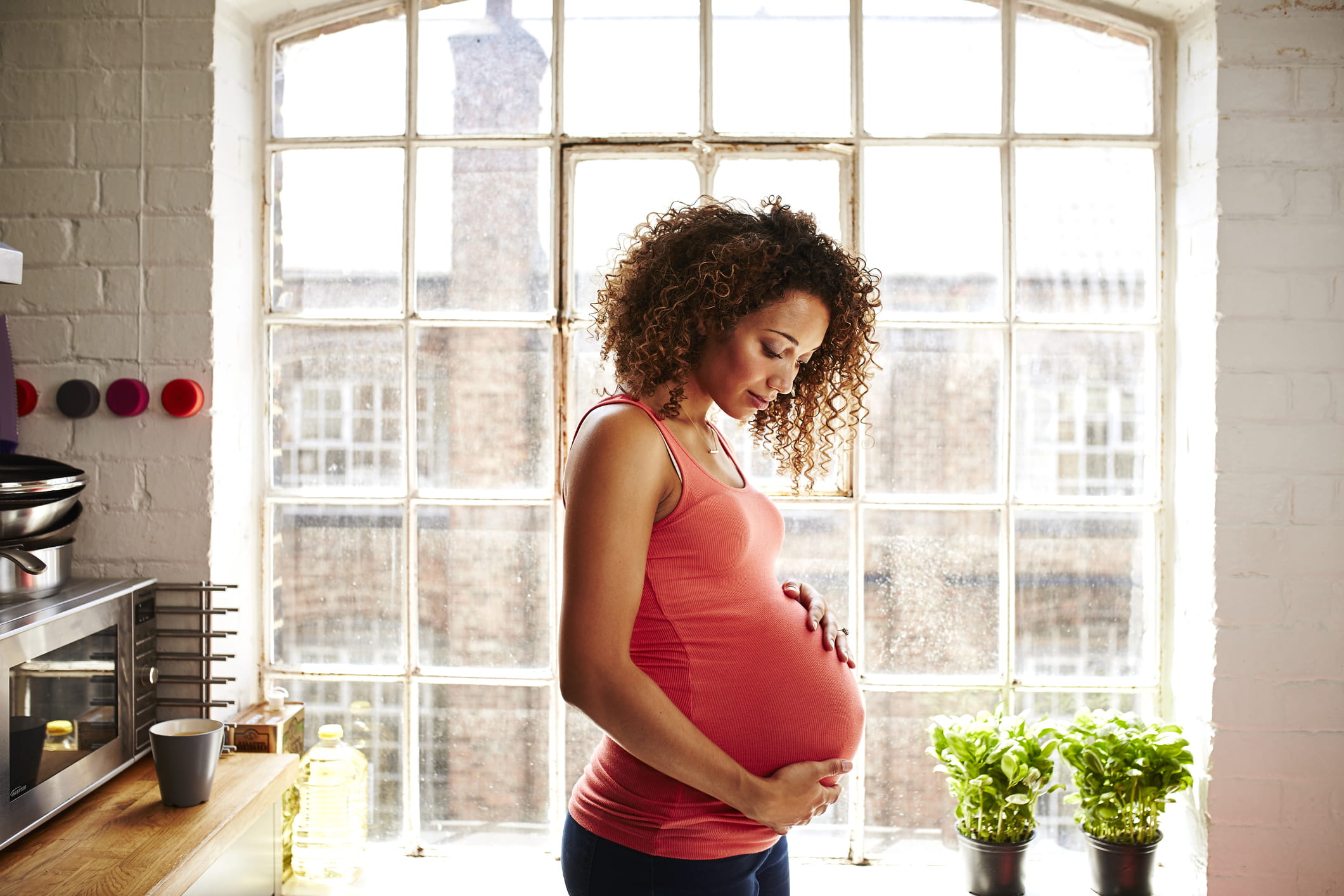Are you due for a routine screening mammogram? If yes, you might consider carefully scheduling that mammogram around your COVID-19 vaccine.
A national organization called the Society of Breast Imaging has issued new guidelines for the timing of your mammogram and your COVID-19 vaccine. The new guidelines are for women who do NOT have breast symptoms.
Why does the timing matter?
“Some women – a small percentage – develop swollen lymph nodes under the same arm where they received their COVID-19 vaccine,” explains Benjamin Pettus, M.D., radiologist. “This enlargement of the axillary lymph nodes usually subsides within a day or two, but it interferes with our ability to get a reliable reading of your mammogram.”
How swollen lymph nodes impact your mammogram – and why it matters
When radiologists read your mammogram, they look closely for any changes.
Usually swelling in the lymph nodes is a sign of infection or another medical condition. However, in some cases, swelling around the armpits is a signal that breast cancer has spread to your lymph nodes. Sometimes, it spreads before you even feel a lump in your breast.
“To investigate the reason behind your swollen lymph nodes, the radiologist may need to call you back to the breast center for an ultrasound of your underarm area,” explains Dr. Pettus “And if you’ve had a vaccine for COVID-19, you might need a follow-up exam to make sure the swelling has subsided and is not actually a sign of cancer – that it’s a side effect of the vaccine.”
Bottom line: The swelling you may get after a COVID-19 vaccine can interfere with your breast evaluation and cause you unnecessary concern and travel time.
How to schedule your screening mammogram around your COVID-19 vaccine
To reduce the need to investigate swollen lymph nodes under your arm, schedule your annual screening mammogram:
- Any time before you receive the first dose of your COVID-19 vaccine
- Four to six weeks after the second dose.
- For those patients that meet CDC criteria for a third dose, schedule four to six weeks after vaccination.
Of course, if you get the single-dose COVID-19 vaccine, schedule it before the vaccination or 4-6 weeks afterward.
“Scheduling your mammographic exam prior to the vaccine – or four to six weeks after the second shot – diminishes the likelihood for “call backs” for isolated enlargement of the axillary lymph nodes,” says Dr. Pettus. “If you’ve already had your COVID-19 vaccine and you want to schedule your mammogram, contact your breast imaging center to ask for guidance about the timing.”
What to do if your routine mammogram and COVID-19 vaccine are already scheduled
If your routine screening mammogram is overdue – or if you can’t reschedule during the next few months – go ahead and keep your mammogram appointment. Do not delay your mammogram without speaking to your doctor first
And keep your COVID-19 appointment too.
“Both the screening mammogram and vaccine are extremely important tools to keep you healthy,” says Dr. Pettus. “Annual mammograms help detect breast cancer as soon as possible and save lives. Vaccines are key to controlling the pandemic. For these reasons, we leave the decision to reschedule an appointment up to the patient and referring provider.”
What to do if you have concerns about breast symptoms
The guidelines for timing your mammogram around your COVID-19 vaccine are for women who do NOT have breast symptoms.
Always be alert to any new symptoms in your breast, including:
- New lump in the breast or underarm (armpit)
- Breast or nipple pain
- Irritation or dimpling of breast skin
- Red, flaky, thick skin on the breast
- Pulling in of the nipple
- Nipple discharge other than breast milk
- Any swelling or change in size or shape of the breast
“Do not delay a diagnostic breast exam – for any reason – if you have a symptom that concerns you. This could be a sign of breast cancer or another condition that needs attention,” says Dr. Pettus. “Consult your doctor right away.”
On the day of your mammogram
Whenever you get your mammogram, be sure to tell the provider whether you’ve had
COVID-19 and the vaccine, when you had the vaccine, in what arm, and whether it’s the first or second dose. This information will help the radiologist interpret your mammogram results.



